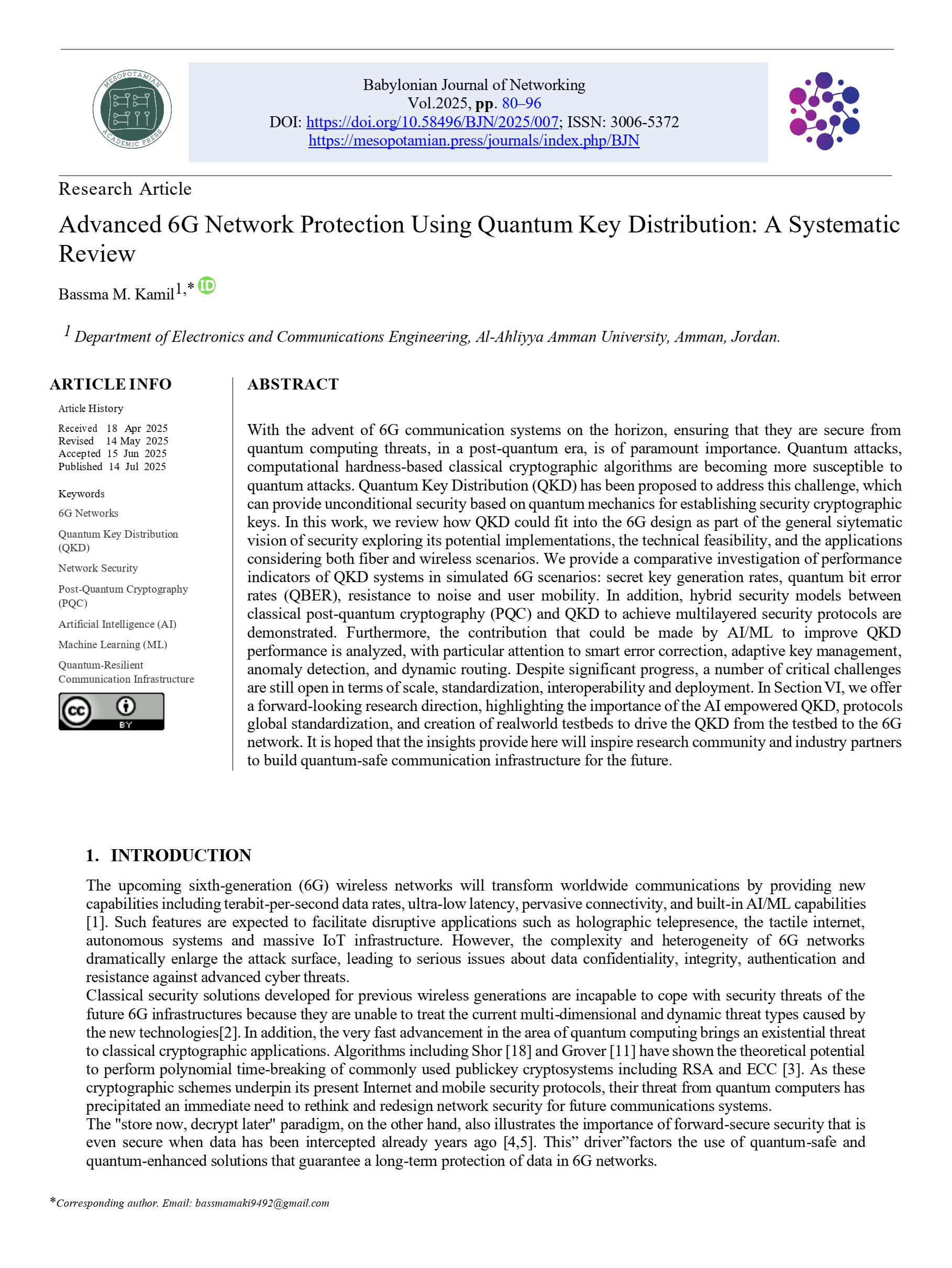Advanced 6G Network Protection Using Quantum Key Distribution: A Systematic Review
Main Article Content
Abstract
With the advent of 6G communication systems on the horizon, ensuring that they are secure from quantum computing threats, in a post-quantum era, is of paramount importance. Quantum attacks, computational hardness-based classical cryptographic algorithms are becoming more susceptible to quantum attacks. Quantum Key Distribution (QKD) has been proposed to address this challenge, which can provide unconditional security based on quantum mechanics for establishing security cryptographic keys. In this work, we review how QKD could fit into the 6G design as part of the general siytematic vision of security exploring its potential implementations, the technical feasibility, and the applications considering both fiber and wireless scenarios. We provide a comparative investigation of performance indicators of QKD systems in simulated 6G scenarios: secret key generation rates, quantum bit error rates (QBER), resistance to noise and user mobility. In addition, hybrid security models between classical post-quantum cryptography (PQC) and QKD to achieve multilayered security protocols are demonstrated. Furthermore, the contribution that could be made by AI/ML to improve QKD performance is analyzed, with particular attention to smart error correction, adaptive key management, anomaly detection, and dynamic routing. Despite significant progress, a number of critical challenges are still open in terms of scale, standardization, interoperability and deployment. In Section VI, we offer a forward-looking research direction, highlighting the importance of the AI empowered QKD, protocols global standardization, and creation of realworld testbeds to drive the QKD from the testbed to the 6G network. It is hoped that the insights provide here will inspire research community and industry partners to build quantum-safe communication infrastructure for the future.
Article Details
Issue
Section

This work is licensed under a Creative Commons Attribution 4.0 International License.
